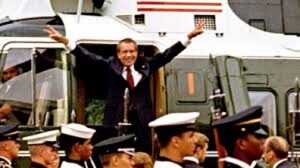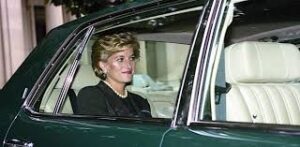This may be a lesser-known outrage perpetrated by John D. Rockefeller. I just stumbled upon this story and think it is both interesting and sad. It provides another demonstration of Rockefeller’s dark and ruthless agenda to “give no quarter” to anyone opposing his plans.
Coal mines became wildly profitable as the westward expansion of railways rapidly grew during the late 1800s and early turn of the 20th century. Many little coal mining towns popped up as the expansion continued. Coal mining towns were notoriously known as “feudal domains”, famously run by ruthless thugs that exacted ultimate control over workers and their families. Company housing was required. Town money known as “scrip” was a typical form of control that coal miners lived under while performing the most lethal job in America, with a death rate more than twice that of the average labor jobs of the day. Miners or Colliers faced incredible dangers daily with cave-ins, suffocation, and explosions.
So, of course, directly in the middle of the profit-on-everyone’s-lives game, was John D. Rockefeller. Along with being the co-owner with controlling interest in Colorado’s largest coal mining company Colorado Fuel and Iron (CFI) he owned numerous towns across the state and country, one of these towns was called Ludlow, Colorado. Rockefeller ruled these holdings from New York City with an iron fist, and never hesitated to demonstrate his cruel dominance and single-minded money-mongering.
“In 1914 the United States House Committee on Mines and Mining reported: Colorado has good mining laws and such that ought to afford protection to the miners as to safety in the mine if they were enforced, yet in this State the percentage of fatalities is larger than any other, showing there is undoubtedly something wrong in reference to the management of its coal mines.”
Colliers were paid strictly based on the production of coal per ton and not for the other required tasks of the job. This pressured many of them to skip necessary safety maintenance. Any grievances related to work dangers or poor treatment were quickly stifled and many towns were armed with menacing thugs to intimidate any attempts to go against the status quo. Colliers and their families were kicked out of their homes, or worse if they dared step out of line. Rockefeller went as far as to import immigrants from Mexico and European countries to limit communication among colliers to deflect any attempts at creating unions that had been quickly sweeping the nation.
Despite the attempts at absolute control, by 1913 The United Mine Workers of America secretly allied with the colliers of Colorado and brought a list of demands to the mining towns and their dictator Rockefeller:
1. Recognition of The Union as a bargaining agent
2. Compensation for digging coal at a ton rate based on 2,000 pounds (previous ton rates were of long tons of 2,200 pounds)
3. Enforcement of the eight-hour work-day
4. Payment for “dead work” (laying track, timbering, handling impurities, etc.)
5. Weight checkmen elected by the workers (to keep company weightmen honest)
6. Right to use any store, and to choose their boarding houses and doctors
7. Strict enforcement of Colorado’s laws (such as mine safety rules, and the abolition of scrip), and an end to the company guard system
The coal companies rejected the demands which led The Union to call a strike. Colliers that participated in the strike were evicted from their homes forcing the workers including those in Ludlow to create tent cities just outside of the town limits.
“The company hired the Baldwin–Felts Detective Agency to protect the new workers and harass the strikers. Baldwin–Felts had a reputation for aggressive strike-breaking. Agents shone searchlights on the tent villages at night and fired bullets into the tents at random, occasionally killing and maiming people. They used an improvised armored car, mounted with a machine gun the union called the “Death Special”, to patrol the camp’s perimeters. The steel-covered car was built at the Colorado Fuel & Iron Company plant in Pueblo, Colorado, from the chassis of a large touring sedan. Confrontations between striking miners and working miners, whom the union called scabs, sometimes resulted in deaths. Frequent sniper attacks on the tent colonies drove the miners to dig pits beneath the tents to hide in. Armed battles also occurred between (mostly Greek) strikers and sheriffs recently deputized to suppress the strike: this was the Colorado Coalfield War.”
Due to ongoing violence across the state, the Governor called in the National Guard for assistance which led to even more brutality as the leader of the National Guard was a Company sympathizer and took every opportunity to exact violence on strikers. After months of bloody turmoil, the state had run out of money to maintain The Guard who were then called off the line. Colorado Fuel and Iron hired more thugs and dressed them in National Guard uniforms.
On the morning of April 20, 1914, when many families were celebrating Easter and also attending a funeral for two infants who had died several days earlier, the CFI goons set up in front of the tent camp demanding the release of a man they claimed was being held against his will. The Guard and other immigrant hired hands placed machine guns at the base of the camp and surrounding areas and detonated dynamite as a distraction. The strikers were alerted and set up arms to protect their position. The CFI militia opened fire on the strikers and their families. The strikers fought back as best they could, and the fight continued throughout the day. It is said that by 7 pm a passing train stopped in front of the Guard’s machine guns to block the onslaught and give strikers a chance to escape to nearby areas.
The tent city of Ludlow colliers was burned to the ground killing all remaining citizens. The bodies of the striker leaders were laid along the railway in full view of passing trains. Relief parties from the Red Cross were fired upon to keep them from providing aid or removing bodies from the burning town.
Word spread of the 55 women and children’s deaths in the Ludlow Massacre which led to further outcry and violence among interested parties. Even reaching as far as bomb threats and attempts on the Rockefeller family estate in Tarrytown, NY. Unfortunately, the Mine Workers Union of America’s demands were not met and they were forced to break the strike. But national scrutiny of this heinous act was too enormous to cover up or whitewash. As the result:
“A United States Commission on Industrial Relations (CIR), headed by labor lawyer Frank Walsh, conducted hearings in Washington, DC, collecting information and taking testimony from all the principals, including Rockefeller Sr., who testified that, even after knowing that guards in his pay had committed atrocities against the strikers, he “would have taken no action” to prevent his hirelings from attacking them. The commission’s report endorsed many of the reforms the unions sought, and provided support for bills establishing a national eight-hour workday and a ban on child labor.”
https://en.wikipedia.org/wiki/Ludlow_Massacre



